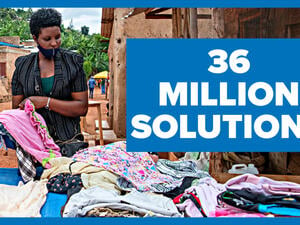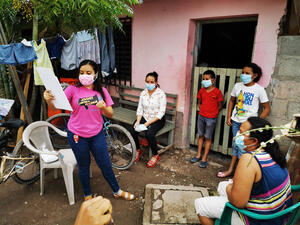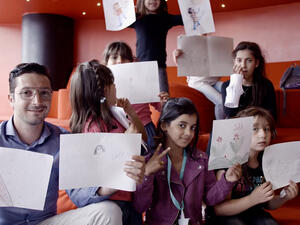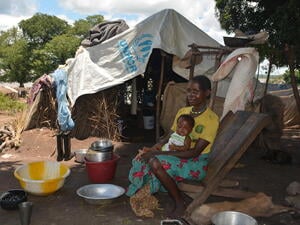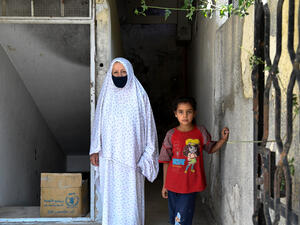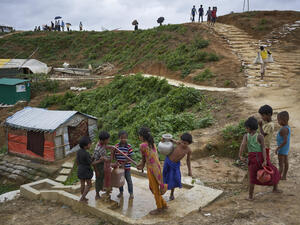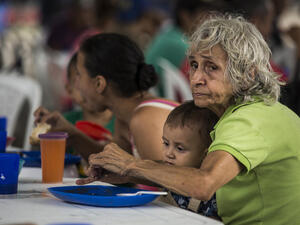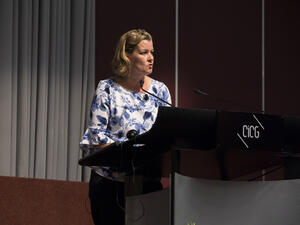Central Asia's legal eagles pledge more cooperation for refugees
Central Asia's legal eagles pledge more cooperation for refugees
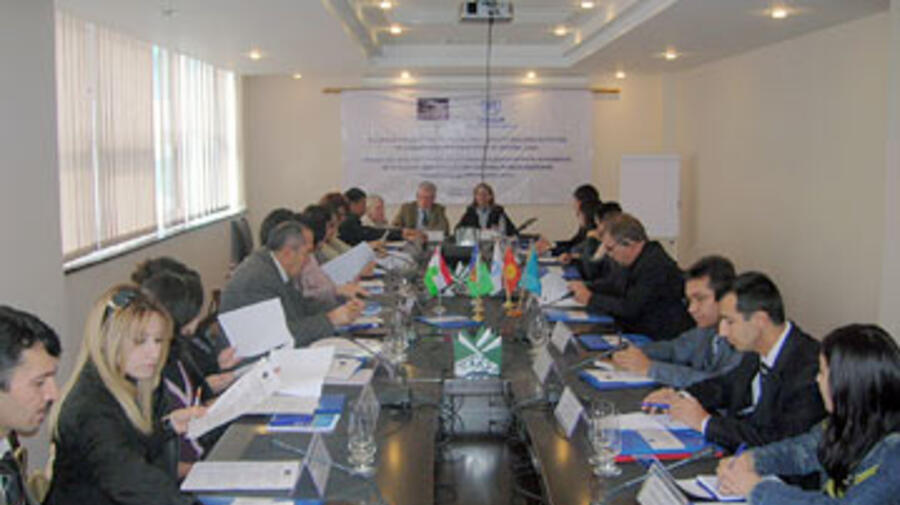
Lawyers from Central Asia exchanged information on their work with refugees at the EU-funded Dushanbe workshop.
DUSHANBE, Tajikistan, October 29 (UNHCR) - Central Asia's legal eagles recently met in Tajikistan's capital, Dushanbe, to share experiences and work together to better protect refugees and asylum seekers in the region.
The two-day workshop brought together 11 non-governmental organizations (NGOs) such as the Bureau for Human Rights and Rule of Law from Kazakhstan, the Public Fund Legal Clinic-Adilet from Kyrgyzstan, Society and Law from Tajikistan and Keik Okara from Turkmenistan.
The meeting was put together by the UN refugee agency under a project funded by the European Union (EU) and known as "Institutional and capacity-building activities to strengthen asylum systems in Central Asia."
With the exception of Uzbekistan, all countries in Central Asia have signed the 1951 Refugee Convention and its 1967 Protocol. Kyrgyzstan, Tajikistan and Turkmenistan have passed national refugee laws while Kazakhstan is currently drafting one.
UNHCR's NGO partners in the region conduct training on refugee law for government officials ranging from police and border guards to migration officials, prosecutors and judges. They also analyze national legislation and lobby for amendments.
"Legal NGOs in Central Asia have so much to share," said Indira Beganovic, UNHCR's protection officer in Tajikistan. "They speak the same language, had similar education and training under the Soviet system, and often work with the same groups of refugees, such as Afghans and Tajiks."
The Dushanbe workshop gave them a forum to discuss achievements and challenges in their daily work. While Adilet recently lobbied successfully for changes in the new citizenship law in Kyrgyzstan, its project manager, Hurnisa Mahaddinova, noted with humility: "I used to think we were very experienced with refugees, until I heard that some NGOs started working with UNHCR in the early 1990s. We certainly have a lot to learn from each other."
Added Denis Zhivaga, of Kazakhstan's Bureau for Human Rights and Rule of Law, "Sometimes we have to fight until the very end. When I could not wait anymore, I appealed to the press and was able to draw the authorities' attention to my client's plea."
Another NGO from Kazakhstan, New Vision, reiterated the importance of the media in changing attitudes towards refugees. It conducts lectures for journalists, students and other members of the public, explaining who refugees are and what can be done to help them.
Meanwhile, in Turkmenistan, NGOs made a breakthrough this summer when the government gave its permission to start training on gender and HIV/AIDS issues for officials and refugees. The classes have proven very useful and are now being taught in the refugee-hosting areas.
Keik Okara is one of the NGOs responsible for the training. "Keik Okara is a bowl-shaped plant which grows in the desert," explained its representative, Sabir Agabalaev. "When it rains, the plant fills with water and pilgrims can have a sip of water under the burning sun. In the same way, we hope we can provide the same salvation for refugees and asylum seekers through each NGO's work."
As a follow-up to the workshop, the participants agreed to appoint one staff member in each country to facilitate regional coordination. They also resolved to compile each other's training and other materials into a single database that could be used by all.
The Dushanbe workshop is part of an 18-month EU-UNHCR project that ends in December. The project seeks to set up a comprehensive and humane international asylum management system by promoting respect for the rule of law in general, and the rights of asylum seekers and refugees in particular by building the capacity of the Central Asian governments and NGOs to deal with refugee-related issues.
Other activities include seminars on legal clinics and statelessness, summer school for law students and the establishment of reception centres for asylum seekers.
By Vivian Tan and Galiya Gubaeva in Dushanbe, Tajikistan

